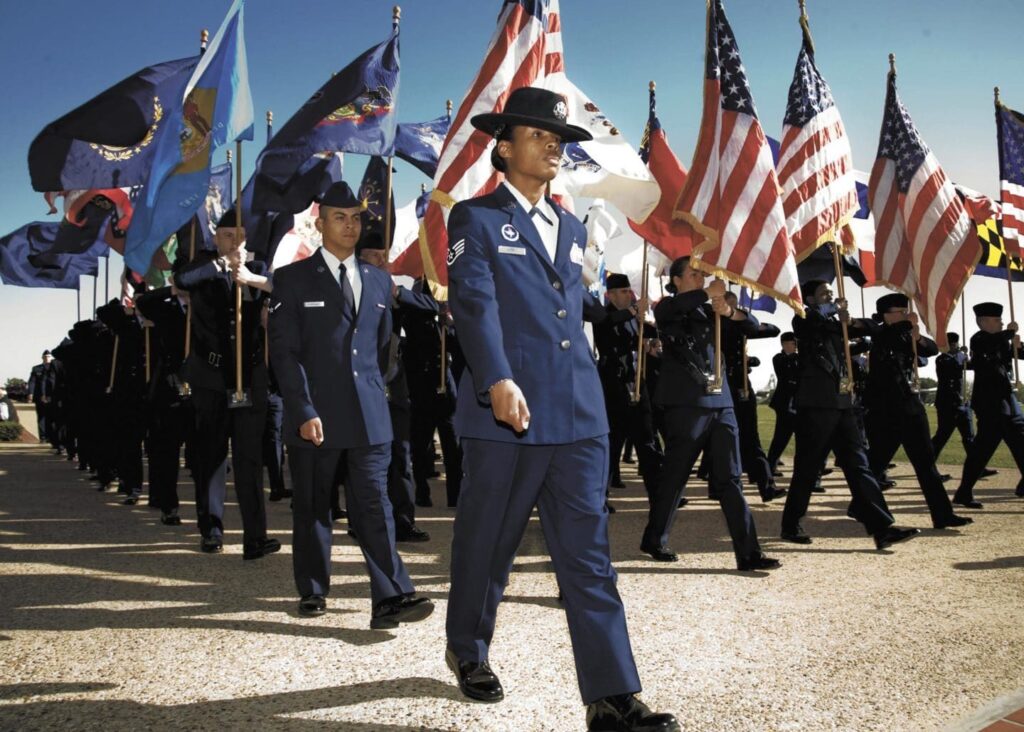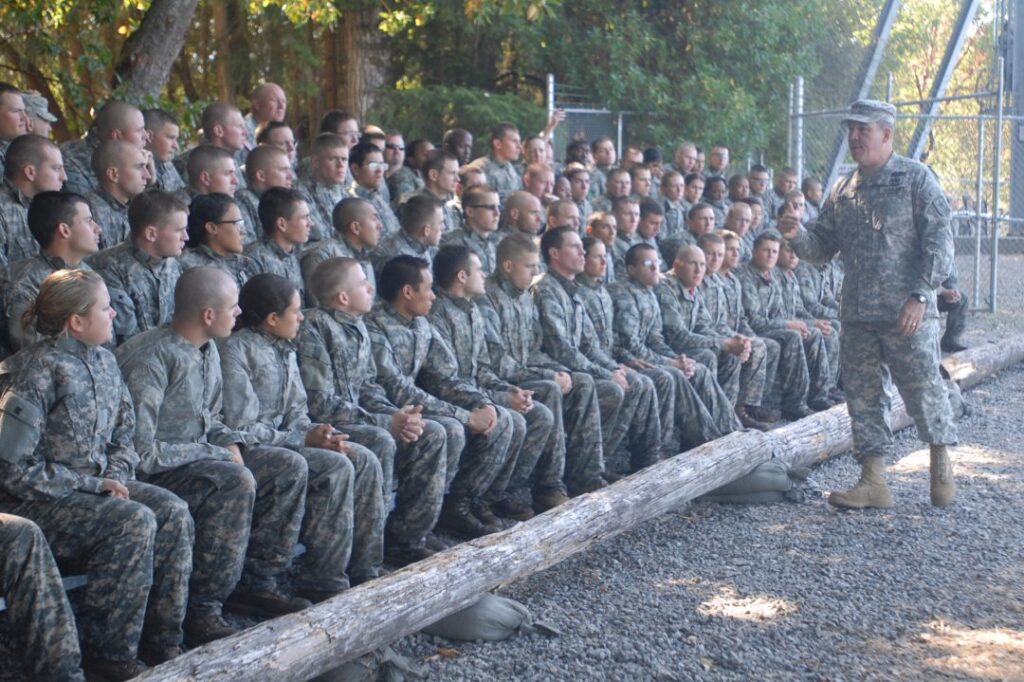
- The App
- Sandboxx News
- Resources
Learn
- Company
About
Become a Partner
Support
- The App
- Sandboxx News
- Resources
Learn
- Company
About
Become a Partner
Support
So, you want to join the military? The first stop you’ll need to make is the military recruiting office. Each office is staffed with military...

So, you want to join the military?
The first stop you’ll need to make is the military recruiting office.
Each office is staffed with military recruiters to answer any and all questions about military life — the recruiting process, the basic training challenges, the awesome benefits — that you need to know before signing on the dotted line.
While a recruiter’s ultimate goal is to get you to sign up, it’s also their responsibility to make sure you’re an excellent fit for the branch they represent.
Ready to learn more about joining the military?
Read on to discover how to get the most out of your meetings with military recruiters.

When you’re considering joining the military, it’s important to look at all your options. That means meeting with multiple recruiters from different branches and processing a lot of information.
One important note to keep in mind: Just because you talk to a recruiter doesn’t mean you’re obligated to join. Speaking with a military recruiter is an information-gathering process for you and them.
By reading up on each branch and talking with anyone you know who has military experience, you’ll feel more comfortable walking into a recruiting office. Even if you don’t do that before you go, you should still be able to have all your questions answered.
If the military recruiter doesn’t know an answer, he or she should be able to find out and get back to you.
A few tips to keep in mind before you go:
When you decide it’s time to see a military recruiter, being prepared for the meeting will make quite the impression. Like a job interview, you want to put your best foot forward. Yes, they need you, but regardless of that fact, it’s important to start the relationship off as professional as possible.
What shouldn’t you wear to the recruiting office?
Business casual — like a polo and slacks or a nice blouse and skirt — are appropriate apparel to wear for meeting with a military recruiter.
You don’t need to show up in a suit, but putting some effort into your appearance goes a long way in showing you actually care about presentation — a habit you’ll need to get into anyway if you plan to join the military.
If you set a time to meet a military recruiter, be courteous and show up at that time. Prove you’re reliable and a person of your word by arriving at the time you said you would. It shows you respect your own time and that of the person you’re meeting. Plus, every aspect of military life is about showing up right on time, making it a good habit to start now.
Aside from being on time, be sure to bring:
Too many potential recruits don’t take the first meeting seriously enough. Show up on time, dress appropriately, and have the right materials in hand. It will make your meeting go smoother and you’ll also get more out of it.
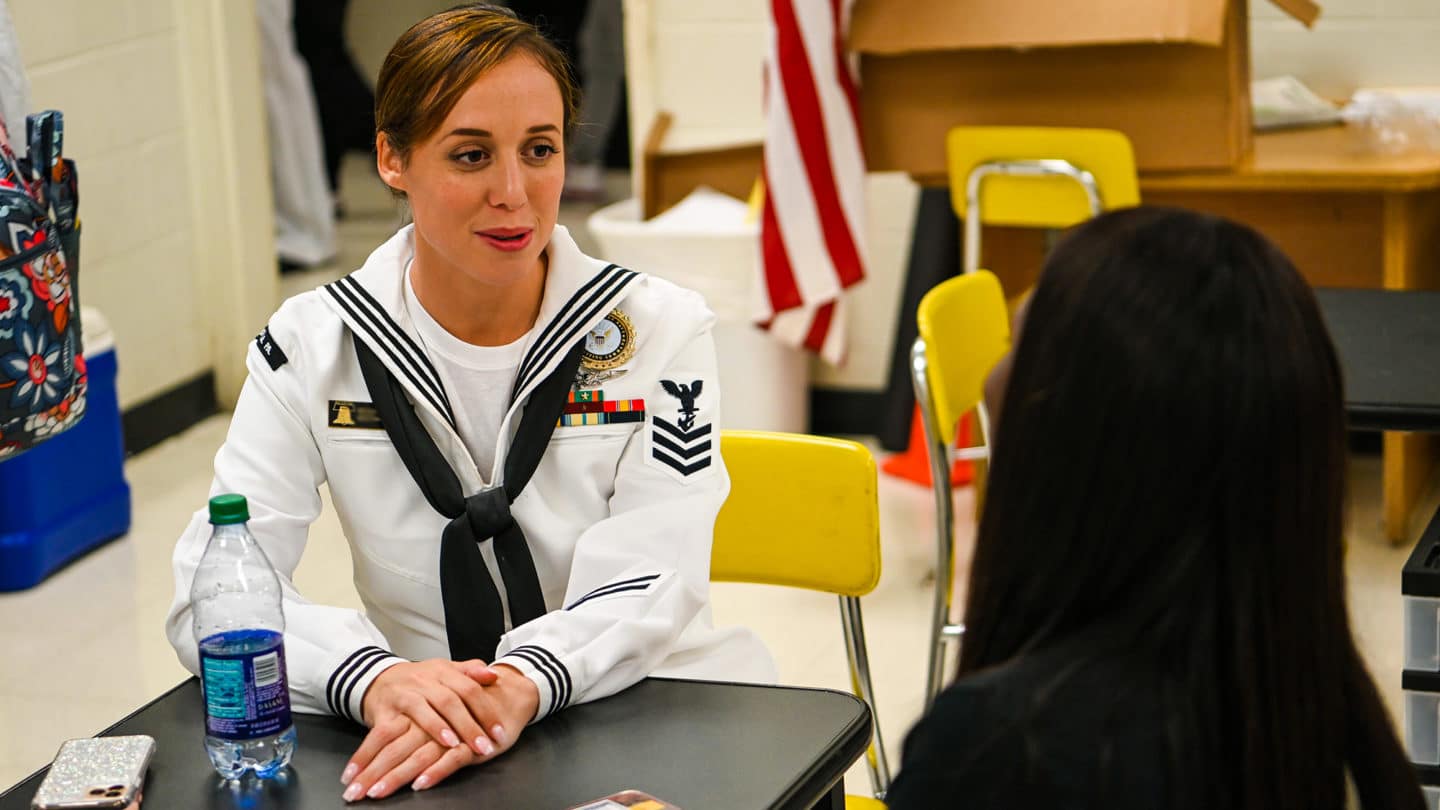
Before you go into the recruiting office, have a list of questions you’ve prepared to ask. If you advance through the process, other questions will likely pop up along the way. Always keep a notebook or note app on your phone that you can access at any time to add questions as you think of them.
Here’s a list to get you started:
These are basic starting points to steer the initial conversations with a military recruiter. Come up with your own list of questions, too, based on what’s important to you and your career direction. Write them down as you think of them so you don’t forget to ask when you’re at the recruiting office!
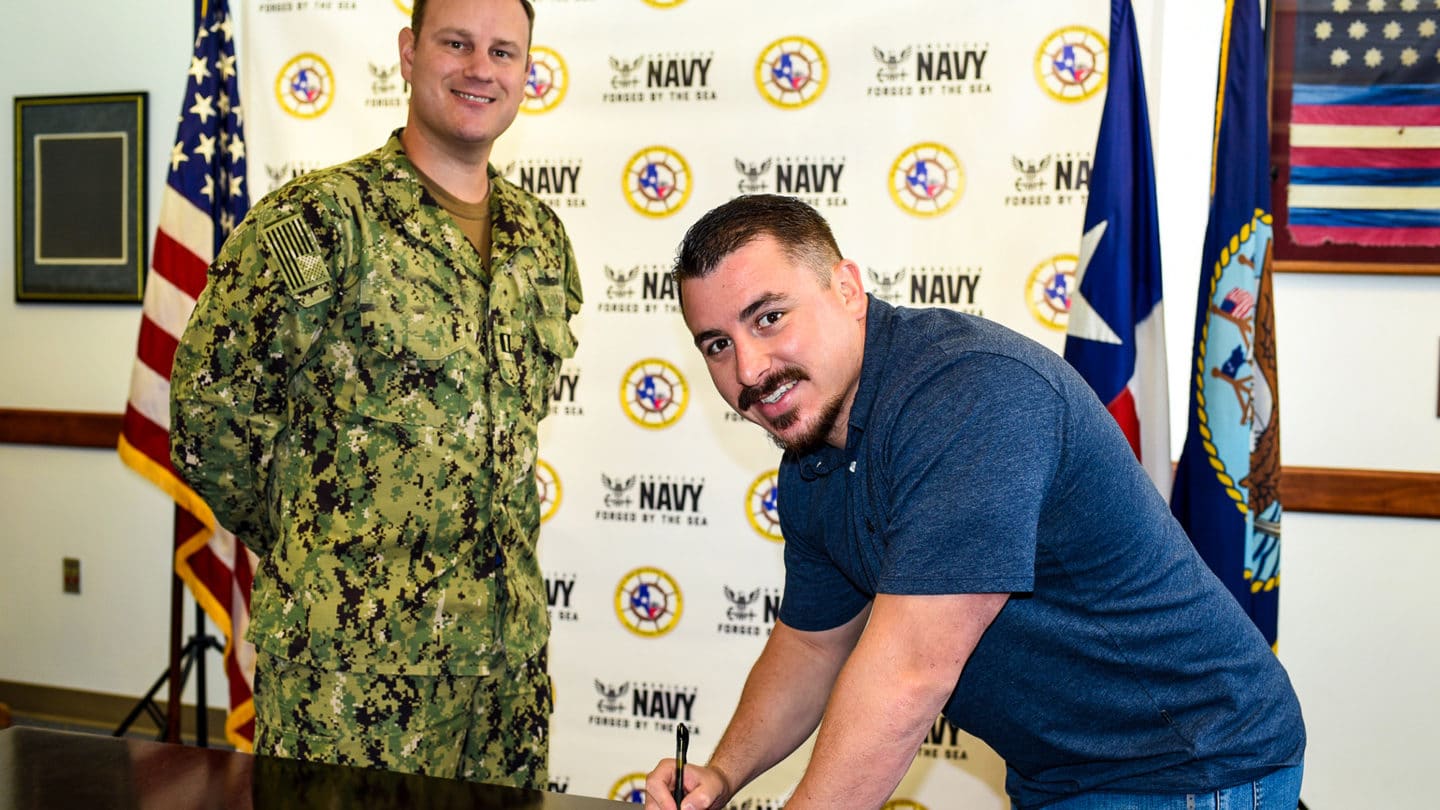
Every branch has its own way of processing recruits. No matter which branch you plan to enlist in, the first step is always to connect with a local military recruiter who can walk you through the process.
Generally, here’s what to expect:
You’ll meet your point of contact for the branch you’re interested in. At this point, you’ll learn about the eligibility requirements and if you can join based on a preliminary screening. Depending on the size of the recruiting office, this person will be the one you speak with each and every time you make an inquiry.
After you meet with several recruiters — or just one if your heart is set on a particular branch — then you’ll meet with your recruiter again to determine if you’re eligible based on other standards. This is the time when you’ll choose between active duty or reserve. At this point, you’ll also need to turn over important identifying paperwork that can move the process forward, including:
Get ready to start tracking down all your medical records. This is quite a process sometimes since healthcare providers have to process it and comply with HIPAA laws, too. You’ll need your primary doctor’s notes, along with the charts from any specialists or surgeons you’ve seen, too.
You’ll need to take the Armed Services Vocational Aptitude Battery, also known as the ASVAB. This exam determines your eligibility to enlist. It’s not an IQ test; it’s merely a way of screening new recruits. The final score determines what jobs you can qualify for along with if you’ll be a success in the military. Read more about the ASVAB and what to expect here.
In the meantime, you’ll also receive an in-depth medical exam to ensure you’re in prime physical health. At this point, you’ll be advised of any medical conditions (like obesity) that may hinder your enlistment process.
Once you have a passing ASVAB score and all your medical paperwork has cleared, you’re ready to sign your contract. It’s important to read every line of your contract to make sure everything is correct. Typos and fact errors should be pointed out at this time.
Depending on your prior obligations, you may have to wait a bit before you head off to basic training. Once you’re ready to head off to basic training, you’ll be declared eligible for service and will take an oath of enlistment.
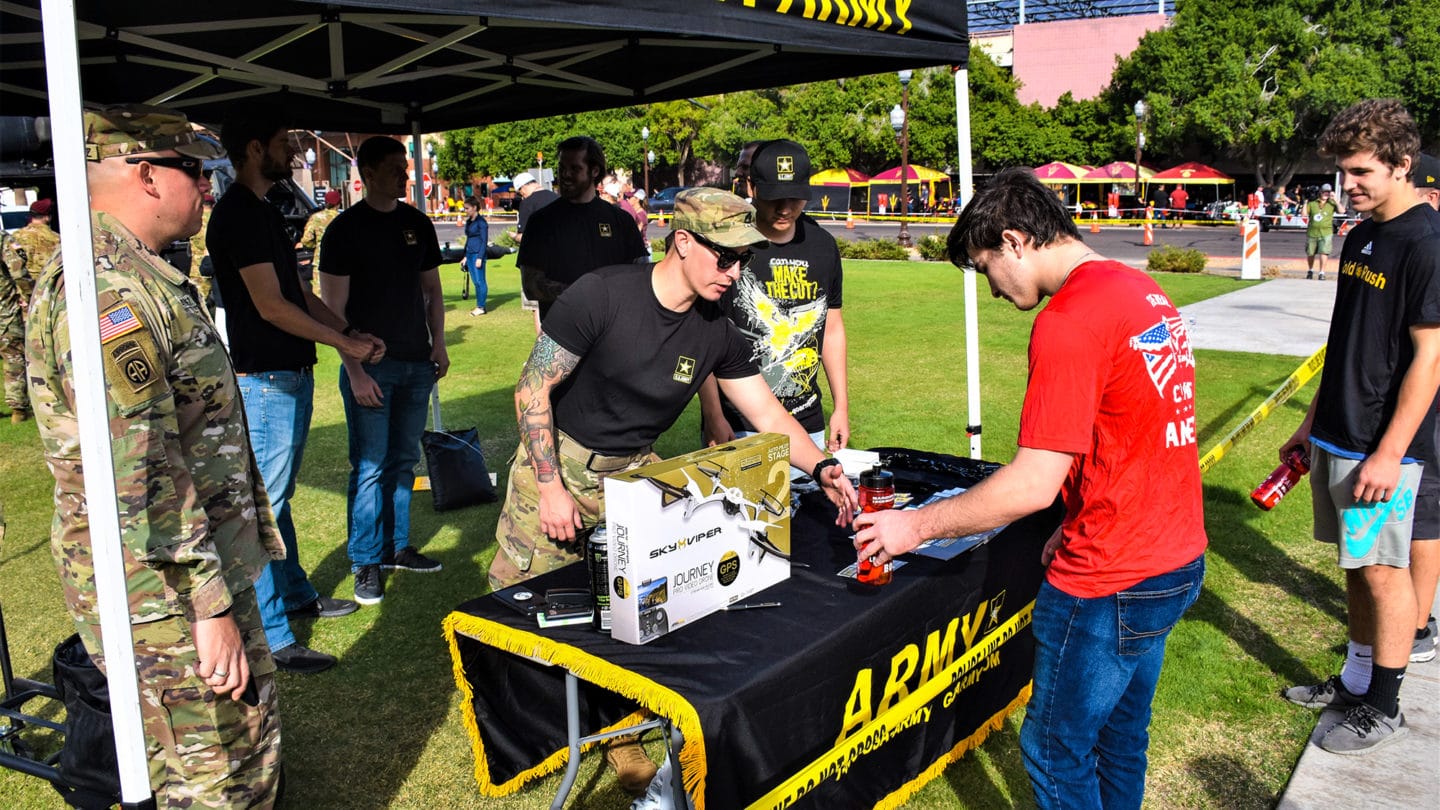
Recruiting professionals usually work in offices, but often they’ll make appearances at job fairs and high schools, too. If you have an interest in joining the military, talk to them as soon as you get the opportunity.
Each recruiter has their own perspective and way of presenting information, which is why it’s a good idea to talk to as many different ones as possible before making your final decision.
Next time you’re out and about in your area, look for a recruiting office. There’s usually one in every county. Each branch also has a recruiting office location listing online that you can narrow down by zip code.
You can find a recruiting office location for each of the branches at the links or by calling the phone numbers listed below:
Army
1-888-550-ARMY (2769)
Army Reserve
1-888-550-ARMY (2769)
Army National Guard
1-800-464-8273
Marine Corps
1-800-627-4637
Marine Corps Reserve
1-800-627-4637
Navy
1-800-872-6289
Navy Reserve
1-800-872-8767
Air Force
1-800-423-8723
Air Force Reserve
1-800-257-1212
Air National Guard
1-800-864-6264
Coast Guard website or live chat
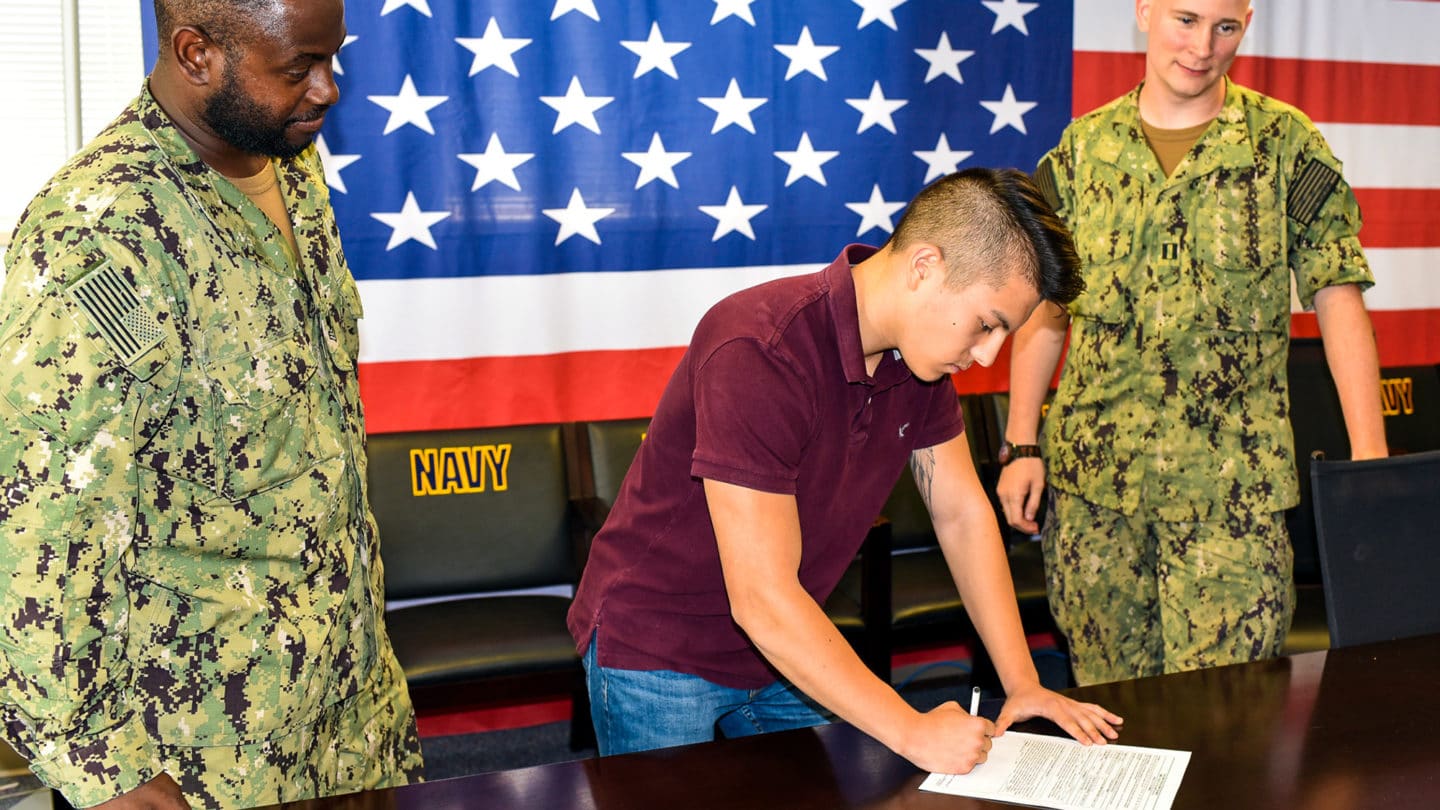
Before joining the military, it’s smart to get as much information as possible. A military recruiter is one person to extract a lot of details about the military entry process.
Who else can you talk to?
Talking with others will give you an interesting perspective that you might not have thought about. Most vets and service members won’t sugarcoat military life, either, so it’s good to get an honest opinion about all the aspects of military work and life.
Until you live it, though, you won’t know if it’s for you. If joining the military is even vaguely inspiring, stop in to see a military recruiter. You can at least educate yourself about the process and what it takes to join.
As you get ready to go see a military recruiter, be prepared to intake a lot of new information. This isn’t a decision you’ll want to make lightly, so spending time prepping and gather your thoughts before you go is a good idea. The more prepared you are going in, the more confident you’ll feel during the process.
Tips to keep in mind:
Keep in mind that the recruiter’s goal is to “sell” you on the military life. A good recruiter will answer all your questions and give you information on both active duty options (enlisted and officer) and reserve details, too.
You want to make sure it’s a good fit for you, so think it over for a few days if you’re still unsure. There’s no need to rush a decision that will impact the next several years of your life!
What questions do you have about the military recruiting process? Let us know in the comments below!


